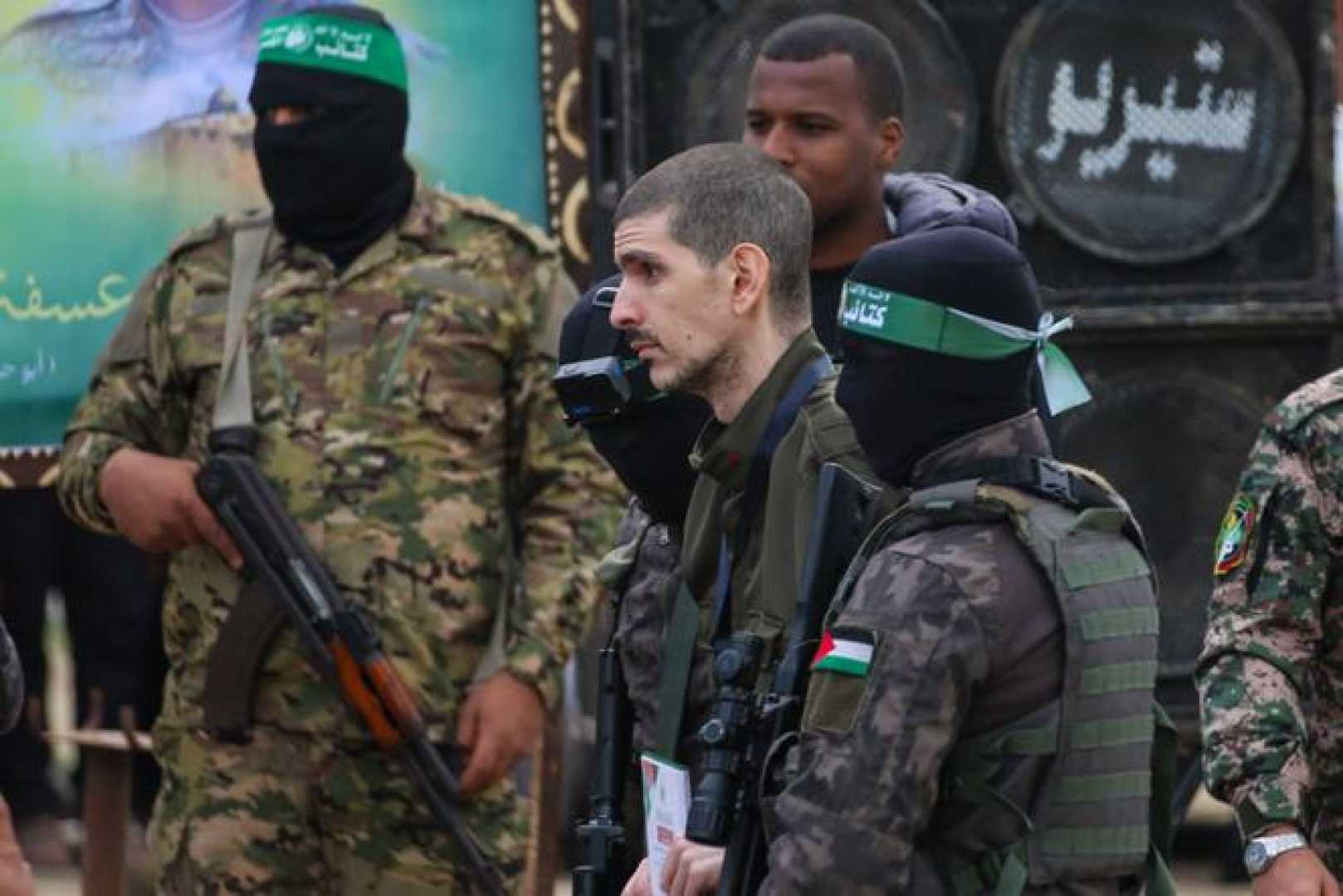World
Hamas to Free Six Living Hostages and Four Bodies This Week

CAIRO — Hamas has announced the release of six living Israeli hostages on Saturday and the bodies of four others on Thursday, marking a significant development in the ongoing conflict between Israel and the militant group. The announcement, made by Hamas leader Khalil al-Hayya, indicates a surprise increase in the number of hostages being released, which is believed to be in exchange for Israel allowing mobile homes and construction equipment into the Gaza Strip.
The six hostages are the last living captives expected to be freed under the current ceasefire’s first phase. The more challenging negotiations for the second phase, which involves releasing dozens more hostages in exchange for a lasting ceasefire and Israeli withdrawal, have yet to commence.
Al-Hayya stated that the “Bibas family,” including Shiri Bibas and her two young sons, Ariel and Kfir, will be part of the handover of four bodies. The family has become symbolic of the captives’ plight in Israel, although the Israeli government has not confirmed their deaths. The Prime Minister’s Office urged the public to refrain from sharing unverified information about the situation.
During the conflict, the Bibas family faced tragedy as Kfir was the youngest hostage taken during Hamas’ initial attack on October 7, 2023. A video of their abduction showed Shiri wrapping her children in a blanket as they were forcibly taken away. Yarden Bibas, the children’s father, was kidnapped separately and released earlier this month.
An Israeli official, speaking on condition of anonymity, revealed that Prime Minister Benjamin Netanyahu consented to allow much-needed mobile homes and construction materials into Gaza to expedite the hostages’ release. Last week, Hamas had threatened to halt hostage takings, citing Israel’s refusal to comply with agreements regarding these supplies.
The ongoing hostage negotiations have seen Israel progressively releasing hundreds of Palestinian prisoners in exchange for hostages, with the recent ceasefire halting some of the deadliest fighting between the two sides. A humanitarian surge has allowed hundreds of thousands of displaced Palestinians to return home as Israeli forces scaled back operations in certain areas.
However, the path ahead remains fraught with challenges. Israeli officials have stated that their ultimate goal is to dismantle Hamas’ military capabilities, even though the group has managed to maintain control over Gaza throughout the ceasefire.
Additionally, tensions surrounding U.S. President Donald Trump‘s proposal to relocate Palestinians from Gaza for redevelopment have faced widespread rejection among Arab nations and Palestinians alike. The fear of displacement echoes back to the Nakba, where many Palestinians lost their homes during the 1948 establishment of Israel.
Public sentiment in Israel has intensified, particularly following the release of emaciated hostages last month and reports of those held in solitary conditions undergoing mistreatment. This situation places additional pressure on Netanyahu’s government to move forward with the next phase of hostage negotiations.
As of now, under the current phase of negotiations, Hamas is set to reinstate 33 Israeli hostages, yet Israeli officials believe around half of the remaining hostages, estimated to be 70, are either deceased or unaccounted for. Should the upcoming releases occur as scheduled, the four bodies are expected to be returned to Israel shortly thereafter.
However, the ceasefire, initially intended to run until early March, is at risk of collapse, raising concerns that violence could erupt anew. While current efforts aim to stabilize the situation, talks concerning the next negotiation phase have yet to begin.
The conflict, which began with a cross-border attack on October 7, has led to the deaths of approximately 1,200 people in Israel, mostly civilians, while airstrikes and military actions in Gaza have resulted in over 48,000 Palestinian deaths, primarily among women and children, according to Gaza’s Health Ministry.












